Living a Fulfilling Life (as a Lawyer)
/by adminKathryn Burmeister, also known as The Happiness Lawyer, details starting her own firm, abandoning the status quo, and the key to being happy in the industry.

Kathryn Burmeister is a self-described recovering attorney. She grew up on books like “To Kill A Mocking Bird” that fostered her passion for doing the right thing. An Atlanta native, she spent the first part of her career at a local personal injury firm until a call from the senior associate rocked the practice.
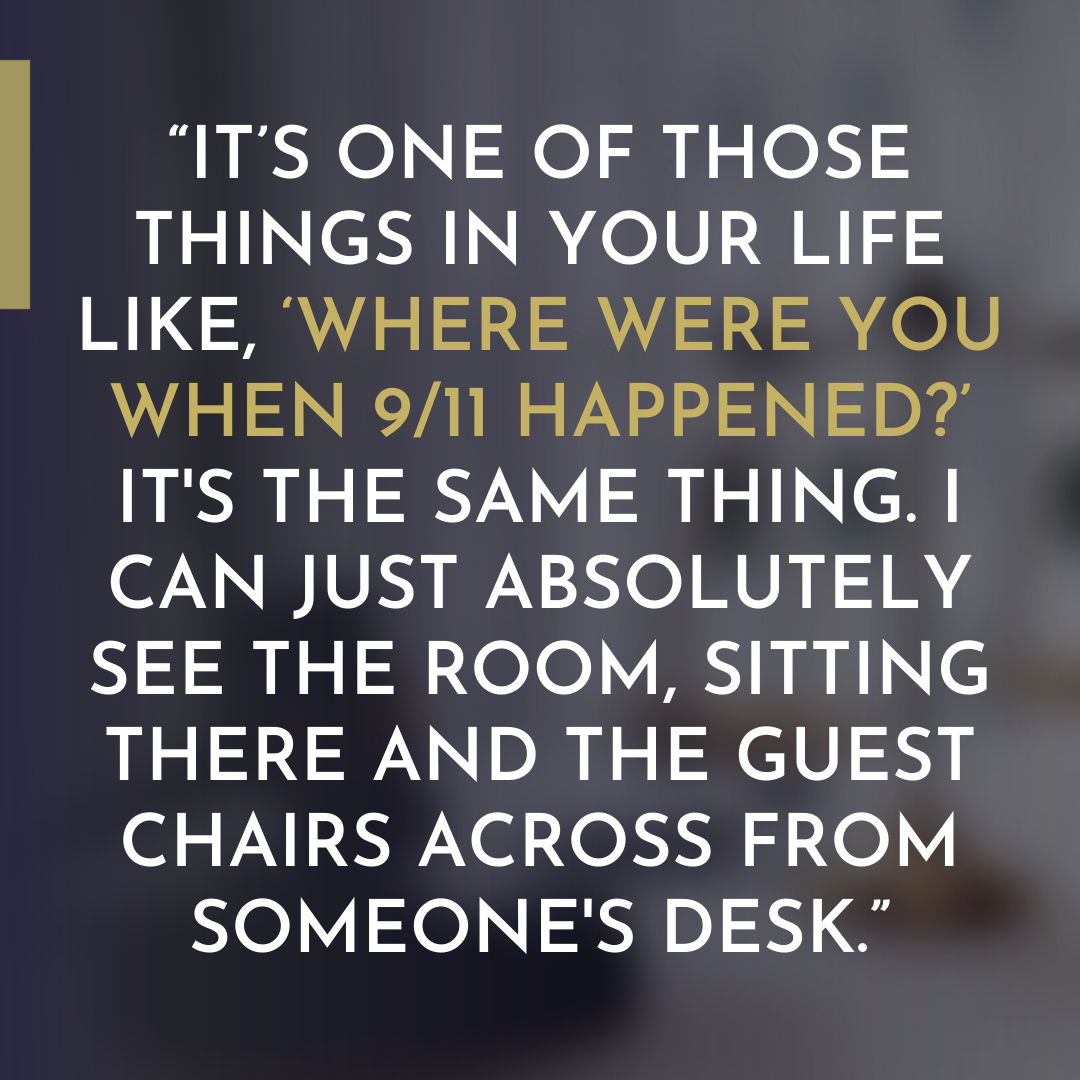
“It’s one of those things in your life like, ‘Where were you when 9/11 happened?’ It’s the same thing. I can just absolutely see the room, sitting there and the guest chairs across from someone’s desk.”
In this episode, Burmeister recalls the burnout she faced after the sudden suicide of her firm’s founding partner. As a young lawyer in a stressful and often overwhelming work environment, she quickly realized that how she was operating professionally was not sustainable. She left her firm after one year of helping to keep it afloat. After struggling with suicidal ideation, she knew that it was time to make a significant shift.
Building a Client Base and Ditching The Status Quo:
Soon after reaching her breaking point, which she likens to Chernobyl, she set off to start her own firm with a unique set of values. Burmeister details what set her firm apart from the competition, as well as how she built up her client base. Upon her exit from her last firm, she took all of the cases in litigation with her, using those clients as a cushion for her transition.
Her new firm was an anomaly among the competition. She strayed away from the traditional idea of what a law firm was and what a lawyer needed to look like. She stresses that her bare-bones approach, which axed suits, marble furniture, and corner offices, were the key to her success. She often met with clients in jeans, ditching the traditional lawyer look. Her team had no physical office, with her paralegals working remotely all over the country.
“The people who are really looking for the right attorneys they’re not going to care whether you have marble or granite…it’s whether you can do the job or not”
Burmeister describes the many benefits of her distributed firm. With no office to maintain, she was able to keep overhead low, which was crucial to her success.
Does Working in Law Make You Happy?
In her new book, “Overcoming Addiction to the Status Quo”, she offers tangible advice on how to be happy in your field.
In her career coaching programs, she first asks her clients a loaded question: Does working in law make you happy? Her three program options aim to help fellow lawyers prevent the kind of crisis that she faced early in her career. She stresses the importance of good sleep and boundary setting, such as not taking calls outside of work hours.
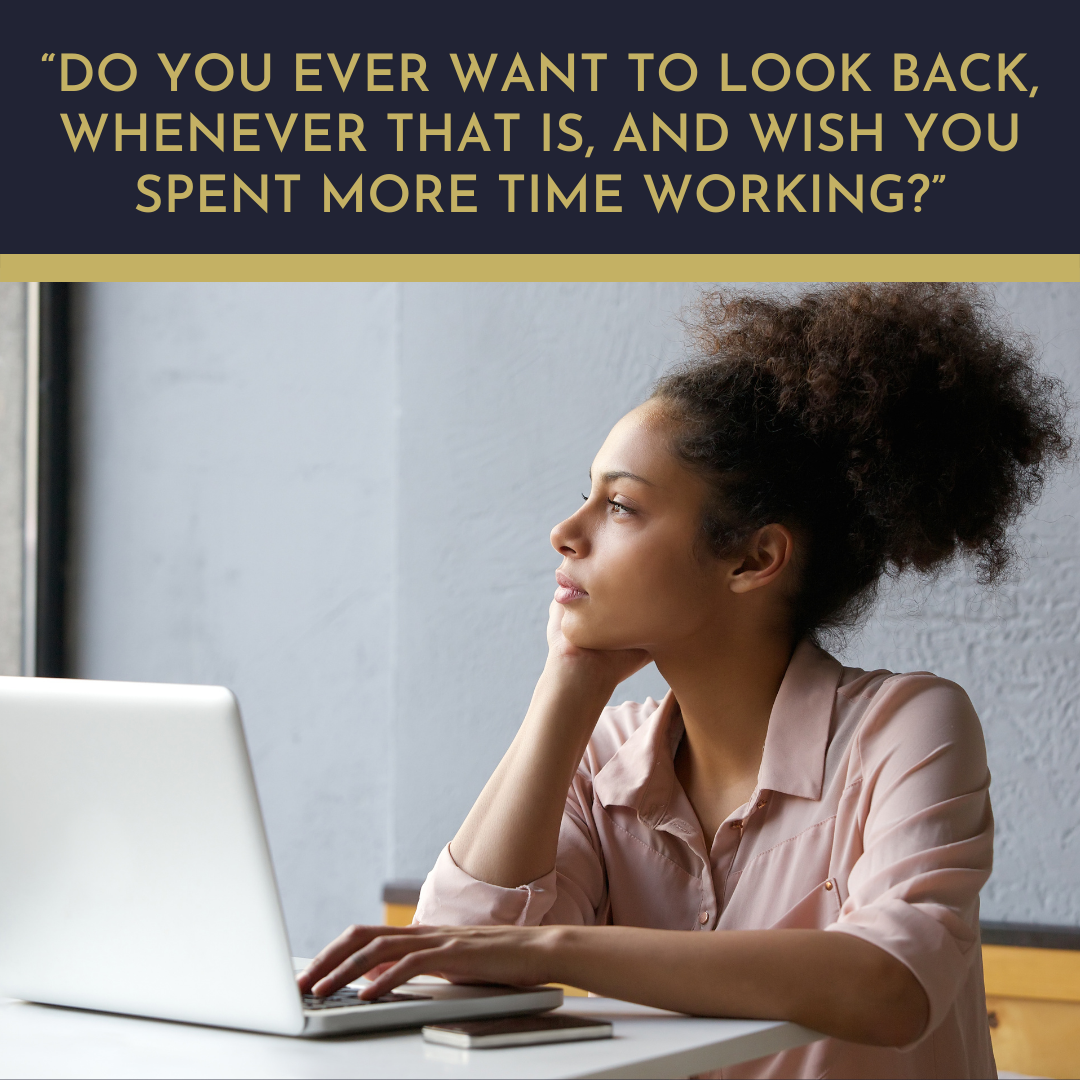
“Do you ever want to look back, whenever that is, and wish you spent more time working?”
Burmeister knows the value of meaningful, personal relationships and encourages her clients to pour into those relationships above all else. She approaches career happiness with pragmatic steps that are sure to help attorneys live a fulfilling life, no matter what stage of life they are in.
To learn more about this show and to follow along with our journey, please rate, review and follow The Advocate’s Key wherever you listen to your audio content.
Originalist Textualism 101 for Practitioners with Keith Blackwell
/by adminKeith Blackwell approaches the law like a time traveler. That’s because the former Justice of the Georgia Supreme Court embraces originalist textualism – a method of legal interpretation that relies on diving deep into legal code to determine the original meaning of a law.
“If you adopt an originalist approach to ascertaining the meaning of text, then you have to go through the endeavor of almost going back in a time machine and trying to figure out what these words most reasonably would have been understood to mean at the time the law was enacted,” Blackwell said.
In this episode, Blackwell explains not only the fundamentals of this legal approach but also breaks down how lawyers can use it to more effectively represent their clients.

WHAT IS ORIGINALIST TEXTUALISM?
To understand originalist textualism, you need to understand its two guiding theories: originalism and textualism.
Textualism is a way of interpreting law that requires looking solely at the words that make up the law. It ignores outside factors of the text, like the problem the law is addressing or the presumed intentions of the lawmakers. Rather, the legal text becomes the main focus.
“Any positive law draws its meaning from its text, because legislators – the promulgators of constitutions, statutes, regulations – they do so by putting words to paper and those words carry some meaning,” Blackwell said. “And whatever the meaning of those words are is the meaning of the constitution or the statute or the regulation. That is the idea behind textualism.”
Once you have dedicated yourself to the idea of textualism, the next question then becomes: ‘What do those words mean?’ You can interpret these words as they mean today or what the words would have meant at the time the law was adopted.
“That doesn’t matter much for a law that was adopted in the last 10 years usually,” Blackwell explained. “It can matter a great deal, though, if you’re talking about a law that was adopted a couple of 100 years ago because words can drift in meaning over time.”
That’s where originalism comes in. At the heart of originalism, is the idea that laws mean no more or less than what they meant to those who originally wrote them.
It requires you to go back to the time the law was enacted and understand what the statute would mean in that era.
“It has a fixed meaning – a law means now what it meant at the moment of enactment,” he said. “And if the law is to change, then it should change through the democratic process of, in the case of a constitution, the people changing it or in the case of a statute, the legislature changing it.”
HOW DO I FIND THE LAW’S ORIGINAL MEANING?
When a law is dated, figuring out its original meaning isn’t a walk in the park.
Luckily, Blackwell suggests a number of tools for judges and advocates to begin to ascertain its significance. First, he recommends closely considering the definition of each individual word. But you have to remember to interpret it through the time period it was written.
“If you’re talking about a really old law [then] you look to a dictionary that was roughly contemporaneous with the enactment of the law, if you’re doing […] originalist textualism,” Blackwell said.
The next step is looking at the law or statute more broadly. You should consider not just one section, but also the language in the context off the entire statute or other statutes around the statute at issue. Blackwell also advises looking at other statutes in the area of law and of diving into what the words within it meant at the time the words were written? When the words were used in court cases before the language was enacted, how were those words used?
Blackwell encourages using all the tools of a law library to bring as much context as humanly possible to the interpretation.
“If I am concerned with the meaning of a particular Code section, I will actually pull out the Codebook and I will peruse that entire article or title of the Code to see what else is in there and how this particular section interacts with other provisions, how it fits with other provisions, how it’s supposed to work with those other provisions.”
HOW CAN IT HELP ME?
Whether your case is going in front of the Georgia Supreme Court or the national one, it’s likely arguments that rely on originalist textualism will carry the most weight.
“If your case winds up in the appellate courts [of Georgia], your case is going to be resolved based on principles like this,” Blackwell said.
It’s all about knowing your audience. Since the justices you will present your cases will likely be using this guiding theory, it’s important your work reflects your knowledge of it.
“You can sit back and not develop those sorts of arguments,” he said. “But then you’re just kind of taking your chances with how this is going to turn out if it winds up in front of the appellate courts. Because if you don’t try to do the work, the judges are going to do it on their own.”
Recently, textualism has been publicly criticized after a draft of an opinion purported to have been authored by United States Supreme Court Justice Alito was leaked. This opinion, if it were to be a majority opinion, would overturn Roe v. Wade, leaving the legality of abortion up to individual states. That purported draft opinion relies upon the tools of textualism.
I do not take a position on textualism either as a proponent or a critic. Rather, this podcast is intended to educate the listener on the approach to better understand issues in the news. And to the advocate who practices before courts with judges or justices who are textualist a tool to use to better represent their clients.
To learn more about this show and to follow along with our journey, please rate, review and follow The Advocate’s Key wherever you listen to your audio content.
What I’ve Read, Heard, And Am Pondering This Week: June 1
/by admin
This blog has been around for a while. It was a popular law blog when everybody had a law blog.
And it’s still excellent. Dan Hull’s What About Paris / aka What about Clients is still a great blog.
Here’s a great recent post, Nice, Smart, American Kids Make Lousy Lawyers.
Hull writes, “Smart” is a prerequisite. “Nice” is okay, “happy” is more important – but you meet few sane clients who insist on “nice. To be an effective lawyer, you need a lot more going on, whether you are doing litigation, transactional work, regulatory matters, and even legislative/lobbying kinds of projects.”
I’m not an expert on personality types.
But in my view, you probably ought to have all of the following: (1) more energy than most people have, (2) stamina (good physical health, perhaps better than average health), (3) persistence, (4) ambition, (5) resilience, (6) competitiveness, and (7) a mean streak a mile wide you can turn off and on.
And that’s for starters.
Here are two more: (8) a natural tendency to thrive on and even relish conflict (no, not “embrace,” I said relish) and (9) a natural tendency to regard “stress as a kind of fuel.”
Lawyers and Stress
Jones, the author of the above article, is 100% right. And yet my Twitter feed is filled with up-and-coming or newly minted lawyers of the millennial / Gen Z variety who are all about (1) abolishing the bar exam; (2) abolishing the LSAT; (3) complaining about not getting some sort of accommodation to make the Bar easier to take.
From my years of reading trial transcripts and observing some of my colleagues in court, I don’t think we should be lowering the barriers to entry into the profession.
Also, when these new lawyers find themselves in a South Georgia courtroom in front of an old-school judge who’s been on the bench for several decades, they won’t be getting many accommodations.
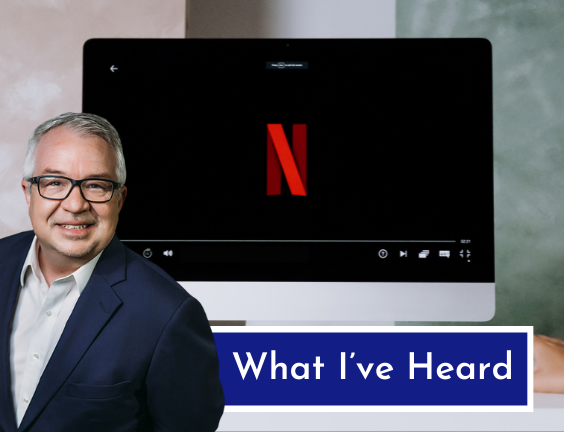
What I’ve heard and seen is the new season of The Lincoln Lawyer on Netflix.
Yes, the plot is Hollywood, with unrealistic twists and turns. But I’ve always loved the books, the movie, and now this series.
The sets, the cars, and the gritty L.A. setting are fun to watch. And The Lincoln Lawyer franchise has always managed to realistically capture the day-to-day grind that is being a trial lawyer. Highly recommend.

Mickey Haller, in the Lincoln Lawyer, was the original remote worker. He was working from the back of a Lincoln before there was a pandemic.
And I’ve been working from practically everywhere since before the pandemic and certainly after. It’s been nice to return to court for some things, even if that has meant re-discovering that suits have top and bottom halves.
But I am pondering what role the office will have in the future of the practice of law. When I’m in my office, I kind of like it and miss it. But I am not sure what.
There’s an article in Fast Company that ponders this question generally. The writer says that employees should have a say in what role the office plays in the future. And if we return to the office, it should become a more comfortable place – sort of like home.
Not sure what my future office will look like – maybe a nice conference room and offices all of my staff can use as they come and go.
What will your future office look like?
Textualism As An Advocacy Tool
/by admin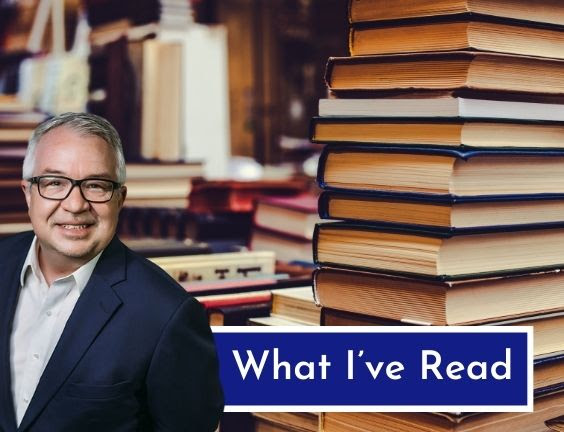
I was in the bookstore browsing the new release when I saw Don’t Know Tough by Eli Cranon. The cover features a football field, goalposts, and scoreboard shrouded in fog.
It’s a high school football novel set in Arkansas. I judged the book by its cover and thought I was going to read something sort of like Friday Night Lights or Remember the Titans. Not so much.
This novel is dark. It’s crime noir, meets southern gothic, meets high school sports story.
It’s the story of a Prius-driving upstart football coach who comes to Arkansas from California, a talented by deeply trouble running back, and a crime that happens in the opening chapters.
I would say that this book has heroes and villains, it’s just that those roles are interchangeable in this book. Along the way, Cranor captures something authentic about high school football in the South, family trauma, and the complexities of politics in the small towns of the South.
There’s also a good bit in here about religion in the South.
I became curious about Cranor and found out that this is his debut novel. But he’s qualified to spin a tale about the topics he covers. Cranor has long had a syndicated advice column on sports and has played quarterback at every level. He’s a great writer, and I’m glad I found his work.
He has misgivings about travel sports for kids.
His writing on this topic has made me like him more. I’m a high school baseball dad but a very chill one. And I’ve seen some stuff this year with other parents – like fellow old guys walking up to their sons on deck and dispensing little nuggets of wisdom as if those kids don’t have a well-qualified high school coach out there with them.
Cranor has me thinking I’m on the right track or at least not totally nuts.
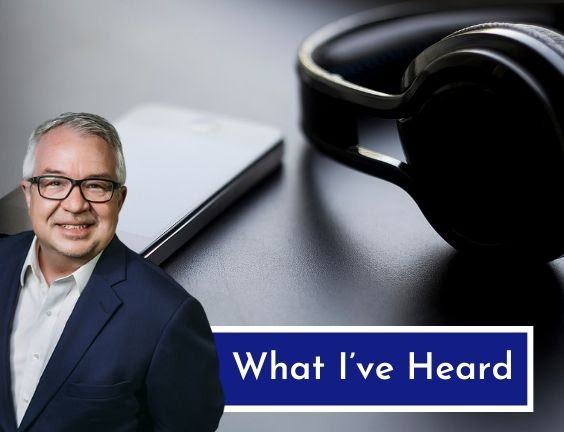
I track my running using the Nike Run Club app on my Apple Watch. I listen with Aftershokz headphones. I take no phone with me. I stream music, podcasts or books when I run.
During the early days of the pandemic, I discovered that I could stream radio from basically anywhere through the Apple Watch. And my go-to choice is? BBC1.
I’ve logged many miles on rural Georgia highways and by-ways listening to a London radio station through a watch. The DJs seem like running companions. And I’ve noticed that music with lots of airplay on BBC1 is a good predictor of what will be the next big thing here.
The British Invasion, it appears, never stopped.
And when I’m out running – a gray-haired lawyer nearing age 50, I know the pop culture trends that are ahead.
As an added bonus, my familiarity with this stuff astonishes (perhaps appalls) my children.

Textualism as an advocacy tool.
By way of a disclaimer, I’m agnostic on the textualist school.
If I show up for a Federalist function, I’m likely there for the Chick-fil-A or to network.
But I’m willing to pick up a tool if it helps me help a client.
Former Justice Blackwell spoke at a CLE in the Fall and told us that this approach to the law is en vogue in Georgia’s appellate courts.
I took good notes. And I’m here for it.
I am hard at work on a brief for a Georgia appellate court. And let’s just say that I did some research in – wait for it – actual law books yesterday.
A law school librarian and I pulled some dusty old Georgia codes from nearly a century ago.
Textualists are big on what words meant at the time they were written. And I’m now using these fun textualist tools.
I am hopeful about the potential power of this stuff. And I’m learning that writing for a textualist court can take you on a fun scavenger hunt through a law library.
As a bonus, librarians love taking people on scavenger hunts.
Also, those old dusty code books smell amazing!
What things are you reading, hearing, and pondering?
Scott
What I’ve Read, Heard, And Am Pondering This Week: March 7
/by adminWhat I’ve Read
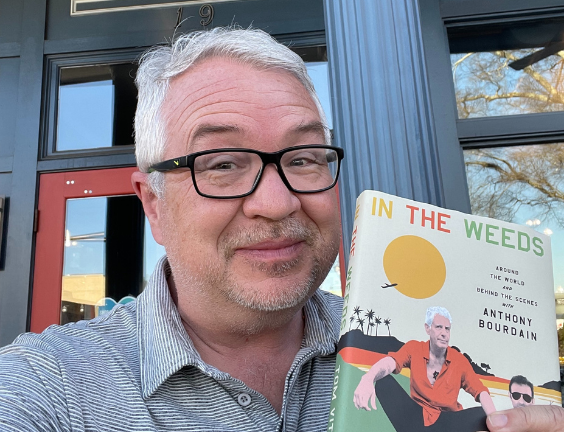
I recently finished In the Weeds: Around the World and Behind the Scenes with Anthony Bourdain by Tom Vitale.
Vitale was a producer and director for No Reservations and Parts Unknown, for the Travel Channel and CNN respectively.
Vitale wrote the book in the aftermath of Bourdain’s death, which details the hard, difficult, and dangerous work that went into producing the shows and the highs and lows of working with someone as brilliant and as trouble as Bourdain.
Vtiale writes, “Tony was a big believer in failing gloriously in an attempt to do something interesting, rather than succeeding at being mediocre. ‘If it’s not interesting, we may as well be working a lunch counter,’ Tony would say.”
I recommend the book because it is fun and interesting — if heartbreaking at times. It is also packed full of lessons about managing a successful team and working with creative and difficult people. Trial lawyers and chefs are a lot alike that way.
I happened to see this book at Story on the Square, a little independent bookstore near my office. I highly recommend that you buy this book from a little bookstore.
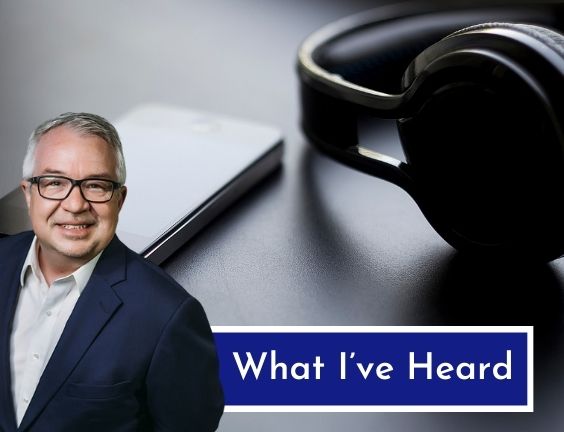
Tyler Cowen has a fantastic interview of writer and pop culture critic, Chuck Klosterman, on his podcast, Conversations with Tyler.
There is a good segment in the episode about writing. Klosterman said, “I think you don’t become a writer until you no longer want to be like other writers. That’s sort of the key. The key is getting beyond the idea that there is some idea of what you think writing is that you can somehow match or find or replicate.”
Klosterman echoes a theme that has emerged in the Appellate Practice and Procedure class I teach with Judge Dillard at Mercer Law School.
Earlier in the semester, Justice Peterson recommended the students to the work of P.G. Wodehouse, the writer who created Jeeves. More generally, he recommended that future litigators read more novels.
More recently we had Keith Blackwell and Judge Andrew Pinson in class. While both agreed with the idea that lawyers should be well read, they echoed Klosterman, advising that we can’t become great at the job if we are at the lectern trying to be someone else.
Perhaps we are most ourselves when we are most engaged in dialogue with as many people as possible – on the page, in person, and through recordings. But fundamentally, we are more qualified to be ourselves than to be another lawyer we admire.
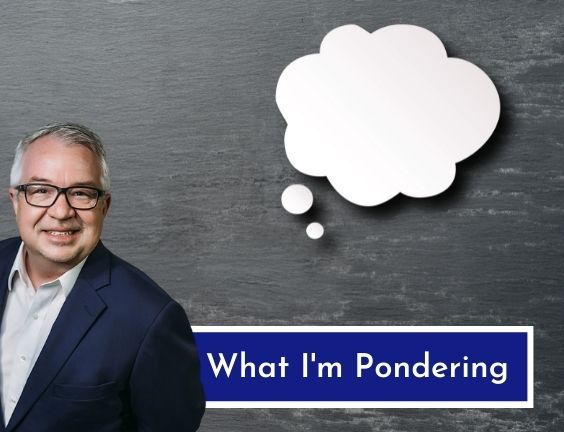
From my recent conversation with Tom Withers, on The Advocate’s Key Podcast, I’m pondering the way I prepare for court.
Tom Withers describes how he writes out the questions he will ask witnesses in court. I get the sense he drafts and revises those questions the way I do a legal brief.
Contrast that to my method, which is to draft a very meticulous set of bullet points to cover with a witness. And, in terms of execution, I tend to do something between using that outline and being totally spontaneous.
Back in my divinity school days, I recall a homiletics professor who said that the prepared preachers write out a complete manuscript of each sermon. But the most well-prepared preachers are those who can abandon the manuscript at the pulpit.
So, maybe the answer for me lies in writing out more verbatim questions but not actually using them when I get into court.
For an example of someone doing this well, check out Keith Blackwell in the GM case at the Georgia Supreme Court.
That’s what I’ve read, heard, and am pondering this week. How about you?
Scott
Embracing the Legal Fundamentals
with William Maselli
/by adminCriminal defense attorney William Maselli explains how lawyers can center basic legal principles to achieve success in the courtroom.
William Maselli knows tradition. Both an experienced criminal defense lawyer and trained composer, he understands how important it is to first master the fundamentals before you can achieve greatness. In both law and music, you have to appeal to higher principles.
“There’s a spiritual element to opera. But, I think there’s a spiritual element to law as well,” Maselli said. “You’re rising above the facts of the case and you’re connecting to more all-embracing principles.”
In this episode, the Maine-based lawyer guides us through his personal journey from composer to lawyer – and what he’s learned in his over 30 years of trying cases. Scott and Maselli discuss the importance of collaborating with experts and the value of a dogged approach to law.
Connecting On A Higher Level
When trying a case, it can be easy to become so focused on the details of the case that you forget the reason you’re in the courtroom. Maselli believes it’s important for each attorney to go into a case with a good understanding of the bigger ‘why’.
At its core, law is about being able to make a human connection across the courtroom.
“In dealing with juries, it’s making an emotional connection,” he said. “It’s often a very spiritual connection that you can feel that results in verdicts going your way.”
Before you can expect to reach jurors at a higher level, you have to master your fundamentals. The more of an expert you are in courtroom procedures and tactics, the more room you have to make for the emotional component of a trial.
“Going in with the emotional aspect without being fully prepared isn’t going to work,” Maselli explained. “You’ve got to have your fundamentals of cross-examination down. You’ve got to be able to understand what the issues are in the case and how to get in the evidence you want to get in.”
By mastering the fundamentals of trial, you’re already a step ahead of many lawyers. Then, Maselli recommends asking yourself a simple question: ‘Why do you care?’ Your answer will help to ensure you are approaching the case with compassion
Jurors can identify with that emotional attention to the case. Maselli believes that a lawyer should be able to help two people from completely different walks of life and experiences to understand and empathize with one another.
“People’s lives are at stake in some very fascinating circumstances sometimes,” he said. “When you’re addressing the jury, that’s what separates a great artist in the field from someone who is just going through the motions.”
It’s also important to make an effort to connect with judges. The more you understand how your individual case connects to broader legal principles, the better equipped you’ll be to express its importance to a judge.
“There’s a broader principle here that affects all of our freedom, all our liberty, all of our constitutional rights,” he said. “To see it in that context and to get it across that you’re dealing with vital and critical issues – the fundamental principles.”
Getting An Outside Perspective
No matter how well-versed you are in the basic legal principles, you can’t be an expert at everything. That’s why Maselli recommends enlisting outside perspectives whenever possible.
When approaching a trial, Maselli usually uses a private investigator in order to get witness statements. It usually helps him to understand how a trial may play out.
“You get some feedback on how they see the case,” he said. “Just for strategizing, it’s important.”
The private investigator can help you see the case beyond its documents. Even when it may seem obvious on paper of a person’s guilt or innocence, not all the evidence may be submitted to the case.
“There’s a lot that may never come to the jury,” he said. “You have to project out what they’re going to get in, how is it going to get in and, if it does get in, is it going to come across as strong as it does in these two sentences from the state troopers report. Or, are there a lot of weaknesses there?”
Employing a private investigator is also a time-saver. It takes effort to track down each witness, and even when you do find them, there’s no guarantee that they won’t be reluctant or hostile to the idea of talking with you.
A good private investigator has the tools to deal with those kinds of witnesses and the patience it takes to get results.
“You want to get them to say something that might be helpful,” Maselli said. “A PI has some skills that allow them to connect with people and to make them feel they can talk.”
In general, Maselli advises looking for talented people to stand by you. As a criminal defense attorney, it can often feel like it’s you versus the world.
“There’s all these little things that go into trying cases, but having support is important. Or else you’re out there on your own.”
To learn more about this show and to follow along with our journey, please rate, review and follow The Advocate’s Key wherever you listen to your audio content.
with William Maselli
